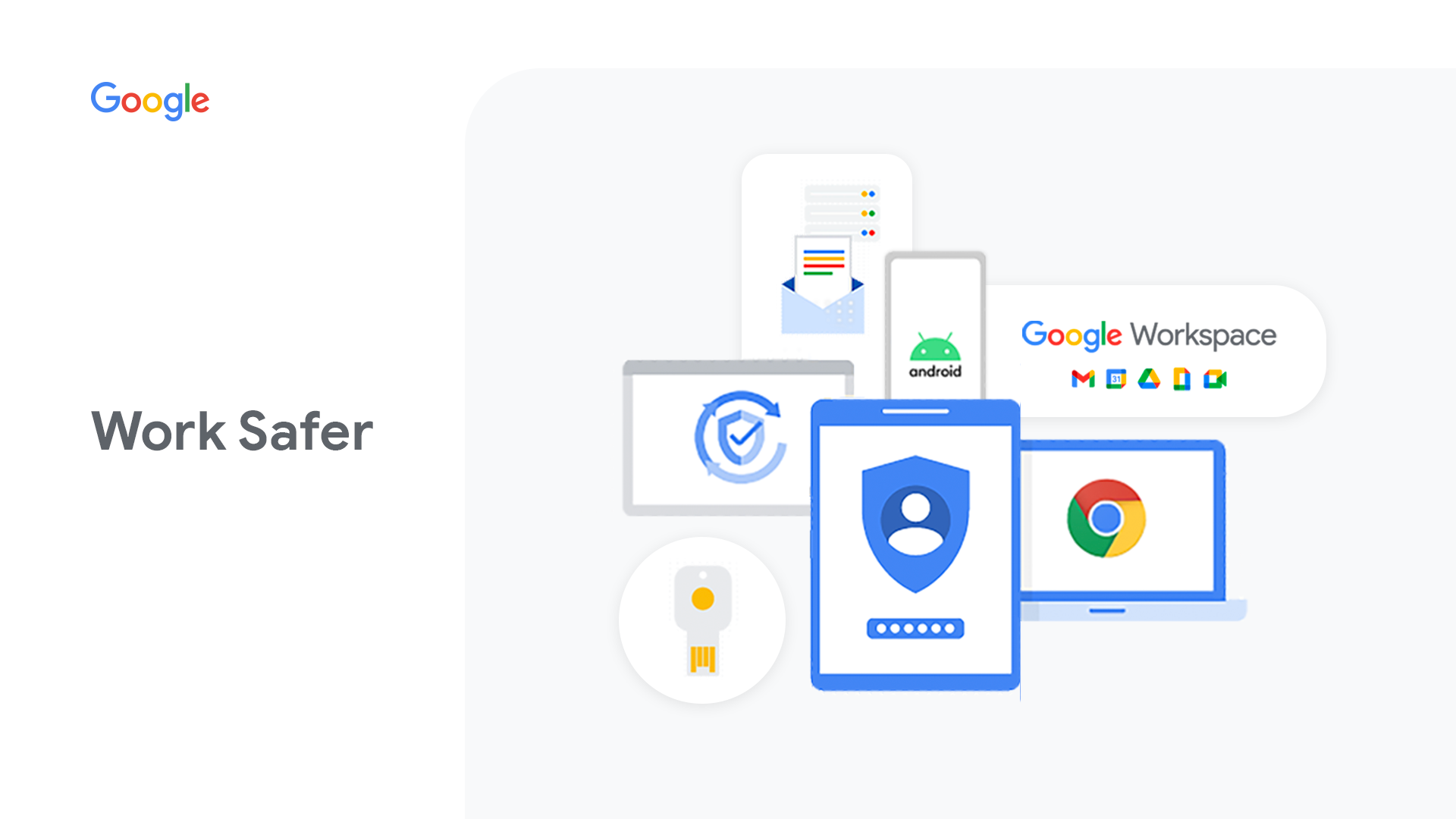 SECURITY
SECURITY
 SECURITY
SECURITY
 SECURITY
SECURITY
Google LLC is expanding its cybersecurity services with a new initiative announced today at Cloud Next ’21 targeted at smaller organizations that rely on legacy technology and lack the expertise to address the security challenges associated with remote work.
Google Work Safer is a new program that gives companies access to a range of services designed to secure email, messages, meetings and documents. The offering combines Google Workspace services such as Gmail, Hangouts and Google Docs with its zero-trust security program, BeyondCorp Enterprise, and extends those capabilities to legacy applications.
Zero trust is a security framework that requires all users, whether inside or outside the organization’s network, to be authenticated, authorized and continuously validated for security configuration and posture before being granted or keeping access to applications and data.
This is exactly the kind of security legacy apps need, Google says, citing data from Accenture Security that show a triple-digit increase in cybertattacks in the first half of the year.
One of the reasons cyberattacks are growing is the prevalence of remote work, which means millions of enterprise workers are accessing legacy apps that were never designed for that purpose.
“Legacy productivity tools designed in the PC era were not architected for the new reality of real-time collaboration across a hybrid, highly distributed and mobile-first workforce,” said Sunil Potti, vice president and general manager of Google Cloud Security. “With Work Safer, every small business, enterprise and public sector institution can have access to cutting edge security protections to make hybrid work safer.”
Work Safer goes quite a bit further than just enabling zero-trust security. It also provides capabilities around threat detection and data protection. Threat detection is delivered by Google’s partners CrowdStrike Holdings Inc. and Palo Alto Networks Inc., whose endpoint protection services help organizations to achieve a stronger security posture. On the data protection side, Google is offering hardware, in the form of Pixel smartphones managed with Android Enterprise, and HP Chromebooks with Chrome Enterprise Upgrade.
Protections cover cloud, desktop and device security to “address companies that may not have the in-house expertise to address the cybersecurity threats associated with remote work,” said Phil Venables, Google Cloud’s chief information security officer.
Additionally, customers can leverage Google’s Titan security keys to keep employee’s Google accounts safe, and the reCAPTCHA Enterprise service for website fraud prevention. Lastly, Google is throwing in its security analytics tool Chronicle to help customers investigate security incidents.
At the same time, Google Workspace has added new security features to its collaboration tools. Client-side encryption for Google Meet gives customers direct control of encryption keys and the identity service used to access keys.
Meanwhile, Data Loss Prevention for Google Chat helps prevent sensitive and confidential information from leaking outside of your organization. Last, the Drive Labels feature, which integrates with Data Loss Prevention and makes it easier to manage external sharing, downloading and printing of sensitive files, is now generally available.
Google Work Safer is making its debut alongside a new strategic advisory service, called the Google Cybersecurity Action Team.
The new team is comprised of Google security experts and has been established to support enterprises and governments through their digital transformation efforts. It’d also aimed at helping customers address security concerns around their critical infrastructure.
Designed for customers that are deadly serious about security, the Google Cybersecurity Action Team will provide strategic advisory services around security strategy through a combination of transformation workshops and educational content. It will also deliver trust and compliance services that map global compliance certifications to industry control frameworks, as well as solutions engineering via blueprints and architectures for deploying Google’s security products and services securely, in accordance with regulatory requirements.
The final component is threat intelligence and response services, including threat briefings, preparedness drills, incident support and rapid response engagements.
Google Cloud Chief Executive Thomas Kurian said the increasing prevalence of software supply chain attacks and ransomware means that cybersecurity is a major concern for every C-level executive and board of directors.
“To address these unprecedented security challenges facing organizations in every industry today, we are announcing the creation of the Google Cybersecurity Action Team,” he said in prepared remarks. “The Google Cybersecurity Action Team is part of our ongoing commitment to be the best partner for our enterprise and government customers along their security transformation journey.”
With reporting from Paul Gillin
THANK YOU